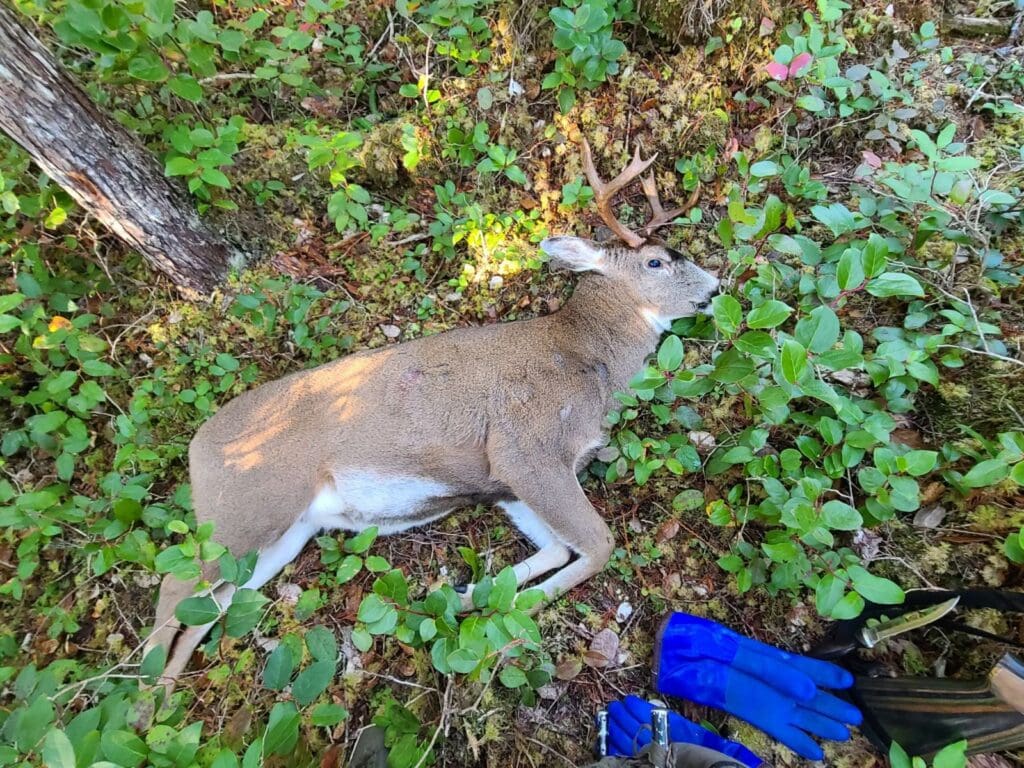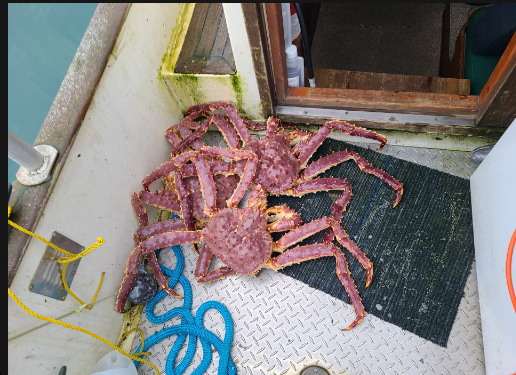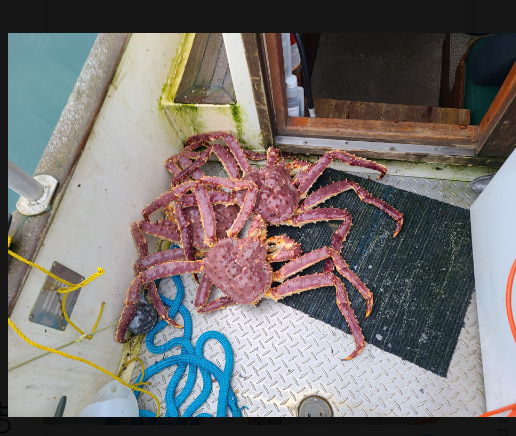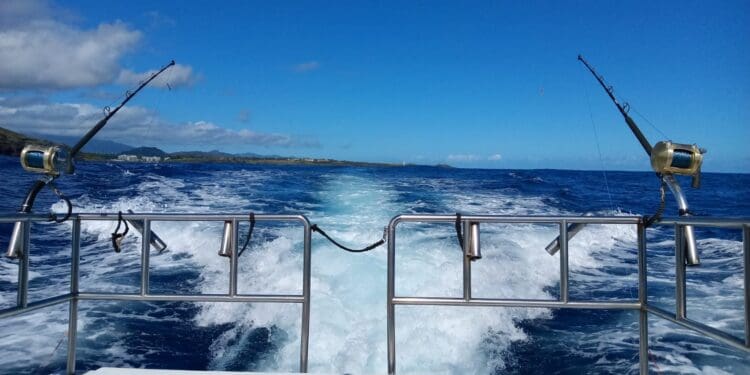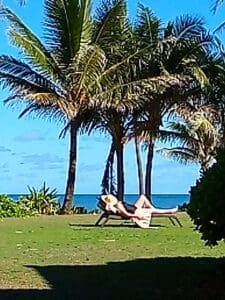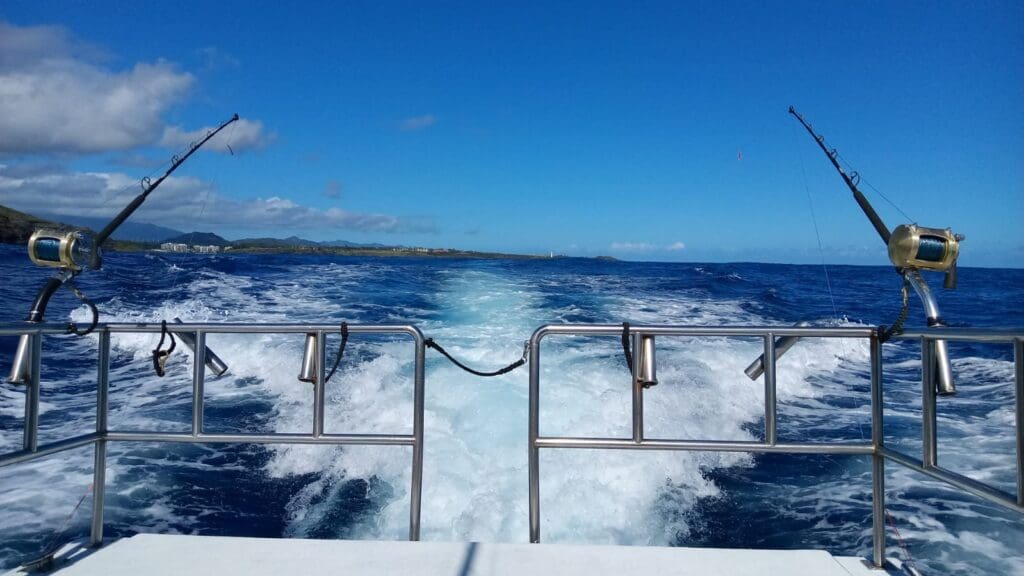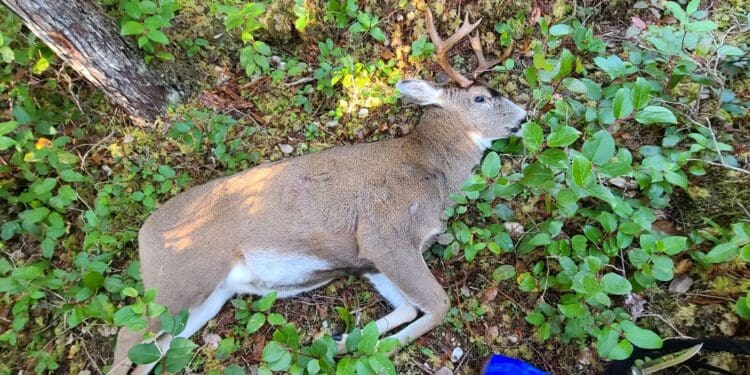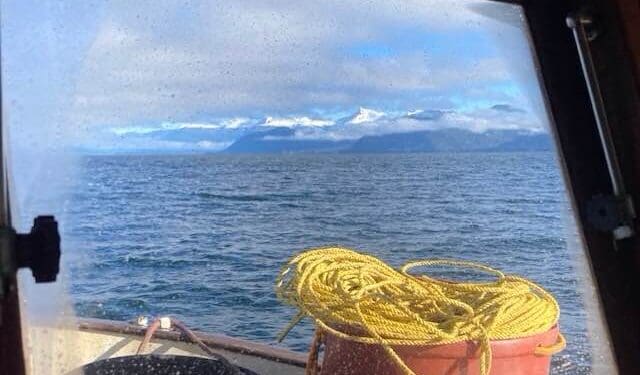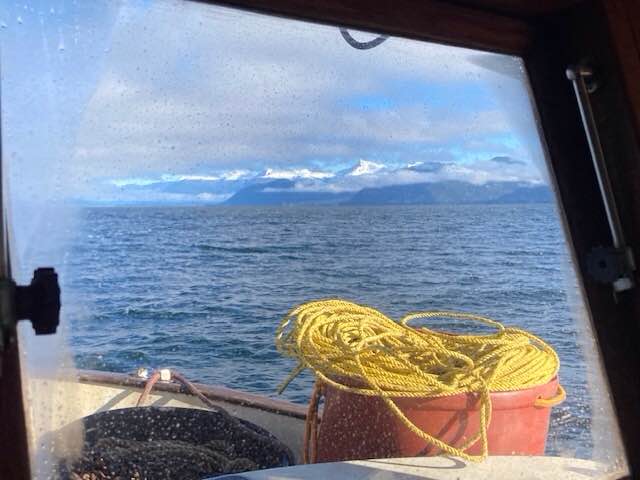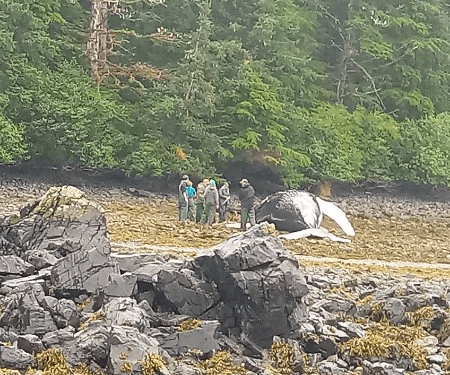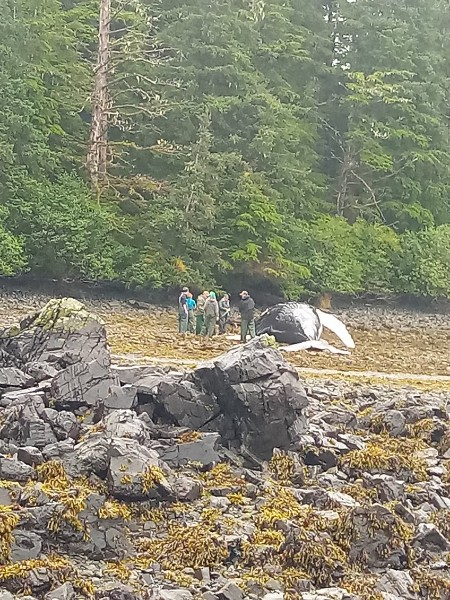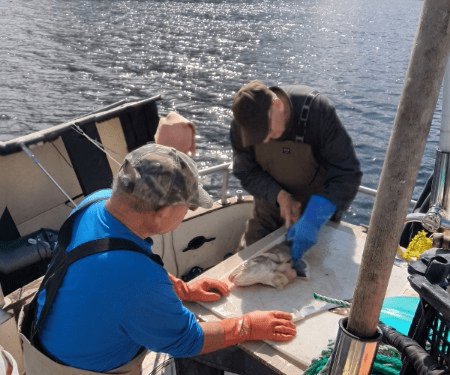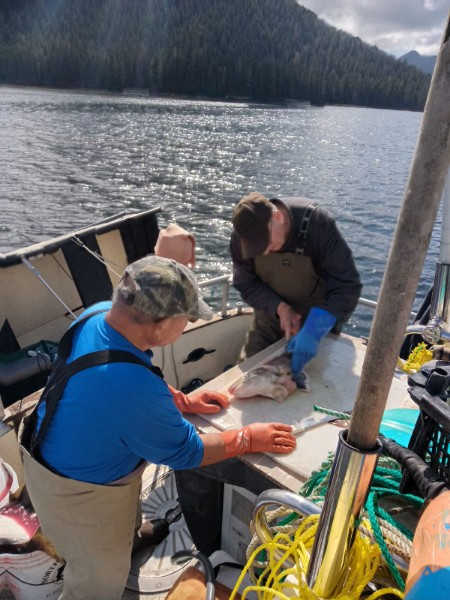Just back from this year’s deer hunt. Nick, Amanda, and I planned to hunt the outer coast out of the tug, but the wind forecast for the next week was so severe that running the boat myself and actually getting to the hunting spots we imagined wasn’t going to happen. So, we regrouped and decided to go to our cabin in Craig. It would be their first time hunting together since Amanda was mauled by a brown bear a little over a month ago while she and Nick were hunting on Admiralty Island near Juneau. Amanda seemed fully recovered, except for some lingering recovery with her hand.
We hunted for the week, in the best week of deer hunting weather I can ever remember: clear and in the 20s°F every day. It was a little windy the first day, but we quickly learned not to hunt spots directly in the wind. I’d drop the two of them off at a spot, travel to a protected anchorage, anchor the skiff, and hunt that area myself.
The first day, they hunted a spot that is usually good, but it was windy. I went to a new area. I hunted an east-west muskeg, then moved up a north-south muskeg. I didn’t see a thing. I decided to cut back through the woods to the first muskeg, making a triangle track for the day. In a little valley with a creek sheltered from the wind, I blew the call. A doe immediately appeared, staying out of the wind. No buck followed, but at least I saw a deer. When I picked up Nick and Amanda, they said they had hiked all over the good deer spots and saw nothing because the wind was howling.
The next day, we hunted an area I don’t think I’d ever been to. I thought it would be out of the wind. We followed the same routine, with them hunting a big area and me a smaller one. It was another clear day, and we were indeed out of the wind, but the ridge that blocked the wind also blocked the morning sun, leaving the muskeg cold. I called at the beach end of the muskeg—nothing. Moving to the ridge end, I called again and heard snow crunching. It sounded like a deer was approaching behind me, but then I saw it in front. It was strange how the sound carried. A doe came within 30 yards, checked me out, and kept going. She didn’t return to later calls, and no buck showed. The partners didn’t see anything either, despite covering a lot of country.
Amanda took day three off, so Nick and I hunted together. We went to the spot I hunted on day one. I stayed with him at the first muskeg, then sent him ahead since he could cover more ground than I could on my bum hip. Midday, I heard a shot—hopefully Nick’s. I got to the beach early, pulled the boat to shore, loaded my gear, and waited. Right on time, Nick arrived with a 3-point buck’s rack poking from his pack. He had called it from timber near a muskeg. A doe came first, followed by the buck, which stopped behind a tree. Nick kept the doe coming, and when the buck emerged, he took the shot. The doe stayed with the downed buck—a behavior I hadn’t seen before. Nick dressed and skinned the deer on-site, bringing back quarters, neck, ribs, backstraps, and tenderloins. His pack was heavy, and I wondered if I could still carry one of these big bucks out myself. I was probably happier than Nick, as seeing family succeed brings me the most joy now.
The winds picked up as we returned. We battled two- to three-footers back to town. At the boat launch, the False Island docks were rolling with three-foot seas. It took both of us to tie up the boat and trailer it out. Yikes. The forecast called for even stronger winds the next day. Amanda took her day off to have lunch with an old friend in town and learn about his wolf research.
Nick and I butchered the deer the following day while Ellen took Amanda hunting on the road system. They saw no deer but plenty of tracks and had fun. That evening, we watched episodes of Alone. It was season 10, the first Amanda and Nick had seen. I’ve watched every season, but we all enjoyed it together. The Starlink I installed earlier this year was great—especially since you can turn it on and off for remote cabins like this without an annual contract. For now, at least.
Ellen invited us to dinner for deer soup, but it turned into fresh king salmon on the grill, caught by Brian and his pilot friend that day. Brian’s brother and his wife joined us, bringing their own salmon dip to complement ours. We brought salad, and together we had a fantastic meal with lots of hunting conversation.
As the winds eased, we decided to hunt a distant spot where family and friends have had success in the past. I dropped Nick and Amanda at a promising location while I hunted a secluded muskeg. The sun was out, and the winds were calm. I didn’t see any deer, but the exercise and sunshine left me feeling better than I had in a while. Nick and Amanda also saw nothing, but the beautiful weather made the deerless days more bearable. The frozen ground was easy to walk on, and the crisp temperatures in the 20s°F made for perfect hiking conditions.
On the last day, Nick and Amanda wanted to revisit the spot where Nick got his buck and then cruise beaches as the tide fell. While they hunted, I put hand troll gear on the skiff and fished one of my favorite drags. I almost landed what I think was a king salmon and released a small lingcod. At noon, I picked them up; they had seen no deer but were eager to explore the beaches. We spotted one deer that retreated into the woods before we could identify it and another doe that emerged when they used the call.
As we headed home, my fuel gauge—always reading full—deceived me. The engine quit, likely because the tank’s pickup tube wasn’t reaching the remaining fuel. After trying unsuccessfully to fix it, Amanda called Ellen, and Brian came to the rescue. We drifted near town for an hour before Brian arrived, towing us back to the dock at dusk. His preparedness and skill made the process seamless, and we couldn’t thank him enough.
The next morning, clouds rolled in after a week of sunshine. A winter storm watch was in effect for Juneau. On the way to the airport, icy roads made for a nerve-wracking drive. I fishtailed on black ice and crawled at 30 mph to make it safely. The flight home was smooth, and now I’m processing the deer Nick gave me. It’s funny—I used to give away the deer when I was their age. Hopefully, Nick and Amanda will want to join me again for more adventures.
